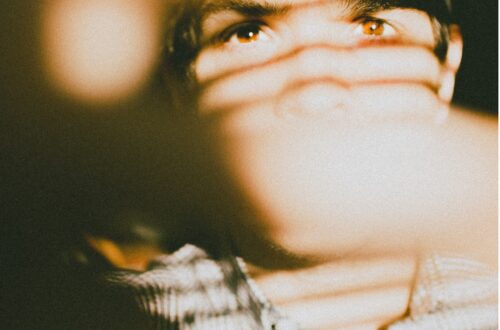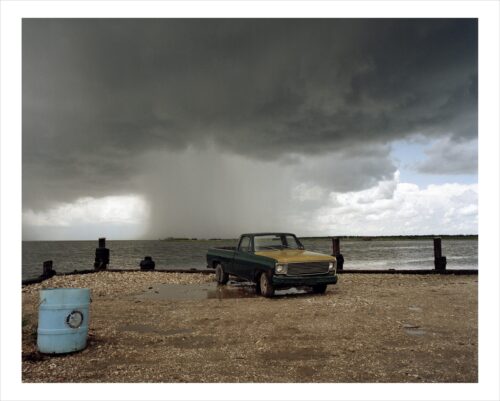
Two Poems by Pietro Federico "New Jersey" and "West Virginia" Translated From the by Italian John Poch
photos by Giovanni Chiaramonte
WEST VIRGINIA
The shack is like a bone half-buried
in the forest of West Virginia.
The two of them live there married.
How black the pigment of their skin
and the hollows of their mouths.
The wrinkles at the corners of their eyes
radiate like wind-struck tears.
Their clarity the only thing clear.
Angels. If they look at you it appears
their souls are looking at you,
and that their souls overflow,
and that these bodies of theirs are only shadow.
I speak in present tense, but they found them
on the shoulder of the highway
on the thirtieth of December.
They had no telephone.
She was feeling bad.
He lifted her onto his back,
her heels held fast to his stomach.
He fell after just a hundred meters,
out in the spinning gusts of icy air
circling tighter with every breath.
Maybe he sang her a song.
And they stayed there,
black in the snow-blind weather
as in the seconds when one drifts to sleep
where things get mixed together
and all begins again.
I had icy tears running down my face,
fire in my eyes.
Maybe it was only the rigid violence of my weeping
by which she, her body empty now,
was scratching my chin with her wedding ring.
Perhaps it was the rough hour of the scriptures
where a foot slips,
where love is time, miseries, fears,
and into peace one can only collapse.
As into a trap.
Where the white lion of winter kisses
both my failing body that holds her own
and her face as black as a lamb.
WEST VIRGINIA
La baracca è un osso mal sepolto dentro
la foresta del West Virginia.
In essa vivono lui e lei.
Così nero il pigmento della pelle
e il cavo delle loro bocche.
Le rughe agli angoli degli occhi
si irraggiano come lacrime controvento.
Chiare l’unica cosa chiara.
Angeli. Se ti guardano sembra
che ti guardino le loro anime
e che le anime trabocchino
e che il loro corpo sia solo un’ombra.
Parlo al presente ma li trovarono
sul bordo della statale
il trenta dicembre.
Non avevano telefono.
Lei si era sentita male.
Lui l’aveva caricata sulla schiena
i calcagni di lei conficcati nello stomaco.
Cadde dopo cento metri appena
nelle spire dell’aria glaciale
più strette a ogni respiro
forse cantandole una cantilena.
E restarono là
neri nel candore micidiale della tormenta
nel secondo in cui ci si addormenta
in cui le cose si confondono
e sembra di tornare alla partenza.
Avevo lacrime ghiacciate sulle guance
negli occhi fuoco.
Era forse solo il pianto per la rigida violenza
con cui lei il suo corpo ormai vuoto
mi graffiava il mento con l’anello.
Forse l’aspra ora delle scritture
dove metti un piede in fallo
dove amore è tempo miserie paure
e nella pace si può soltanto cadere.
Come in un tranello.
Dove il leone bianco dell’inverno sta baciando
il mio corpo infermo che la tiene
e il suo volto nero di agnello.
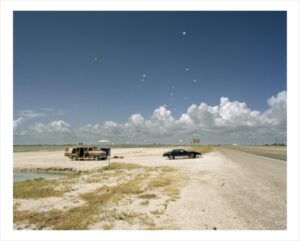
NEW JERSEY
A Vietnam veteran – 1975, Newark Airport, New York, 11 pm
To take a mattock and dig a trench
in the training camp behind the tents
or to leave on a plane doesn’t make any difference.
But I start to find out the difference
when we disembark the cargo plane
and I see leaving in the opposite direction a platoon of coffins.
I almost forget to keep walking.
And so I go to war:
reconnaissance and cover,
almost always my belly on the ground,
and fear is just another arrow in my quiver.
Mama put in my pocket a prayer to St. Joseph,
a prayer to pray when all turns south.
For this my sergeant mocks me all the time.
Already on his third tour,
his skin is thick like leather on a drum,
with a good heart, a godless soul
and an iron mind forged on the front lines.
Sonofabitch, this just
can’t be real: bite the dust
on my mother’s birthday?
Nineteen seventy-one, the seventeenth of November
we’re forced to fall back or none
comes out alive, not one.
Thousands of Charlies crash from the north in waves.
From a football field away, we can feel the air blaze,
reaching through the foliage in gusts,
the heat of hatred without mercy.
Someone must provide the cover, so I volunteer.
The sergeant crawls up beside me,
that skin on his face like stretched leather:
Do you have that prayer?
I land in Newark, eleven at night.
It’s pouring like in Nam, and I want nothing more
than to hug my father
and to tell my mother about her prayer.
I’m telling you all this not because I sense
that my peace is more truly
real than your life among incense
because, to be frank,
you will not find in me a trace of peace.
While I sing “O say can you see…”
and salute our banner
allow me to have the manners,
the universal peace that you spit in my face,
and to confuse it with my hate, my inhuman past,
with that land on which I crept
among the piss, the tears I wept,
with this rain that does not wash the skin, and the bars
of white do not erase
the blood from the stripes
assailing that corner of stars.
NEW JERSEY
Un reduce del Vietnam – Aeroporto di Newark, New York, 23:00
Prendere una zappa e scavare una trincea
nel campo addestramento dietro la caserma
o salire su un aereo è indifferente.
La differenza comincio a vederla
quando scendiamo dal cargo
e in senso opposto vedo salire un plotone di bare.
Quasi mi scordo di continuare a camminare.
E così vado in guerra
ricognizione e copertura
quasi sempre pancia a terra
la paura è solo un’altra arma nel mio arsenale.
Mamma mi ha messo nella tasca una preghiera a San Giuseppe
da pregare ogni volta che butta male
e il mio sergente ci ride sopra continuamente
è già al suo terzo tour
ha la pellaccia resistente come cuoio di tamburo
il cuore buono l’anima atea
e una mente ferrea da prima linea.
Boia ladra non ci credo
vuoi vedere che tiro le cuoia
il compleanno di mia madre?
Il diciassette novembre del millenovecentosettantuno
siamo costretti a ripiegare
o non ne esce vivo nessuno.
Migliaia di Charlie si schiantano da nord a ondate
da cento metri avanti sentiamo lo spostamento d’aria
ci arriva in faccia dal fogliame a zaffate
l’afa di un odio senza perdono.
La ritirata va coperta e mi offro volontario.
Il sergente mi striscia affianco
sulla faccia quella pelle tesa come cuoio.
Ce l’hai con te quella preghiera?
Atterro a New Ark alle undici di sera.
Diluvia come in Nam non voglio altro
che abbracciare mio padre
dire a mia madre della sua preghiera.
Ti dico tutto questo non perché io pensi
che la mia pace sia più vera
della pace che tu vivi tra i tuoi incensi
perché ad essere sincero
di pace in me non è rimasta traccia.
Mentre canto l’inno
saluto militare alla bandiera con la mano
permettimi di accogliere
la pace universale che mi sputi sulla faccia
e di confonderla al mio odio al mio passato disumano
a questa terra su cui striscio
tra piscio e lacrime
a questa pioggia che non lava la pelle
come il bianco non leva
il sangue dalle strisce
che assediano quell’angolo di stelle.
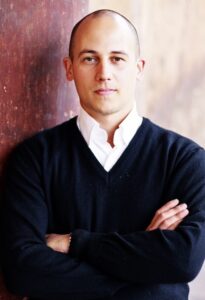 PIETRO FEDERICO was born in Bologna, Italy in 1980, and currently lives in Rome. Writer, copywriter, story editor and translator. His poetry books include “Non nulla” (2003, Ibiskos Editore, Empoli), winner of the prize “Il Fiore” Pistoia 2003; “Mare Aperto” (Nino Aragno Editore, Turin, 2015), winner of the Subiaco Award 2015 and Ceppo Award 2017; and “La maggioranza delle stelle – Canto Americano” (Edizioni Ensemble, Rome, 2020). His translations include “Le storie più mute” by Katherine Larson (Edizioni Interlinea), “La ballata del carcere di Reading” by Oscar Wilde (Giuliano Ladolfi Editore), and “Poems” by Martha Serpas (in Testo a fronte published by Marcos y Marcos).
PIETRO FEDERICO was born in Bologna, Italy in 1980, and currently lives in Rome. Writer, copywriter, story editor and translator. His poetry books include “Non nulla” (2003, Ibiskos Editore, Empoli), winner of the prize “Il Fiore” Pistoia 2003; “Mare Aperto” (Nino Aragno Editore, Turin, 2015), winner of the Subiaco Award 2015 and Ceppo Award 2017; and “La maggioranza delle stelle – Canto Americano” (Edizioni Ensemble, Rome, 2020). His translations include “Le storie più mute” by Katherine Larson (Edizioni Interlinea), “La ballata del carcere di Reading” by Oscar Wilde (Giuliano Ladolfi Editore), and “Poems” by Martha Serpas (in Testo a fronte published by Marcos y Marcos).
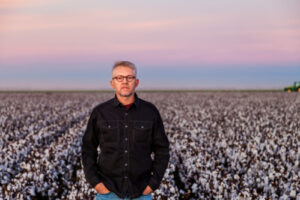 JOHN POCH’s poems and translations have appeared in Poetry, Paris Review, Agni, and many other magazines. His most recent book is Texases (WordFarm 2019). He is the series editor of the Vassar Miller Poetry Prize, and he recently edited the collection, Gracious: Poems from the 21st Century South (TTU Press 2020). His first book of criticism, God’s Poems: The Beauty of Poetry and the Christian Imagination is recently out with St. Augustine’s Press.
JOHN POCH’s poems and translations have appeared in Poetry, Paris Review, Agni, and many other magazines. His most recent book is Texases (WordFarm 2019). He is the series editor of the Vassar Miller Poetry Prize, and he recently edited the collection, Gracious: Poems from the 21st Century South (TTU Press 2020). His first book of criticism, God’s Poems: The Beauty of Poetry and the Christian Imagination is recently out with St. Augustine’s Press.
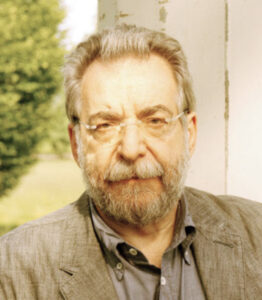 GIOVANNI CHIARAMONTE was born in Varese, Italy in 1948 to Sicilian parents. He began taking photographs at the end of the 1960s, moving toward the figurative and away from the abstract. His work focsues on the relationship between place and human’s identity. Since 1974 he has exhibited worldwide, inclduing at the Triennale of Milan in 2000, 2009, and 2011 and at the Biennale of Venice in 1992, 1993, 1997, 2004, and 2013. In 2010, his work was exhibited at “Hidden in Perspective” at the Expo in Shangai. He founded and directed collections of photography for different Italian publishers. He teaches the Theory and History of Photography at the Free University IULM and at NABA Academy in Milan.
GIOVANNI CHIARAMONTE was born in Varese, Italy in 1948 to Sicilian parents. He began taking photographs at the end of the 1960s, moving toward the figurative and away from the abstract. His work focsues on the relationship between place and human’s identity. Since 1974 he has exhibited worldwide, inclduing at the Triennale of Milan in 2000, 2009, and 2011 and at the Biennale of Venice in 1992, 1993, 1997, 2004, and 2013. In 2010, his work was exhibited at “Hidden in Perspective” at the Expo in Shangai. He founded and directed collections of photography for different Italian publishers. He teaches the Theory and History of Photography at the Free University IULM and at NABA Academy in Milan.




